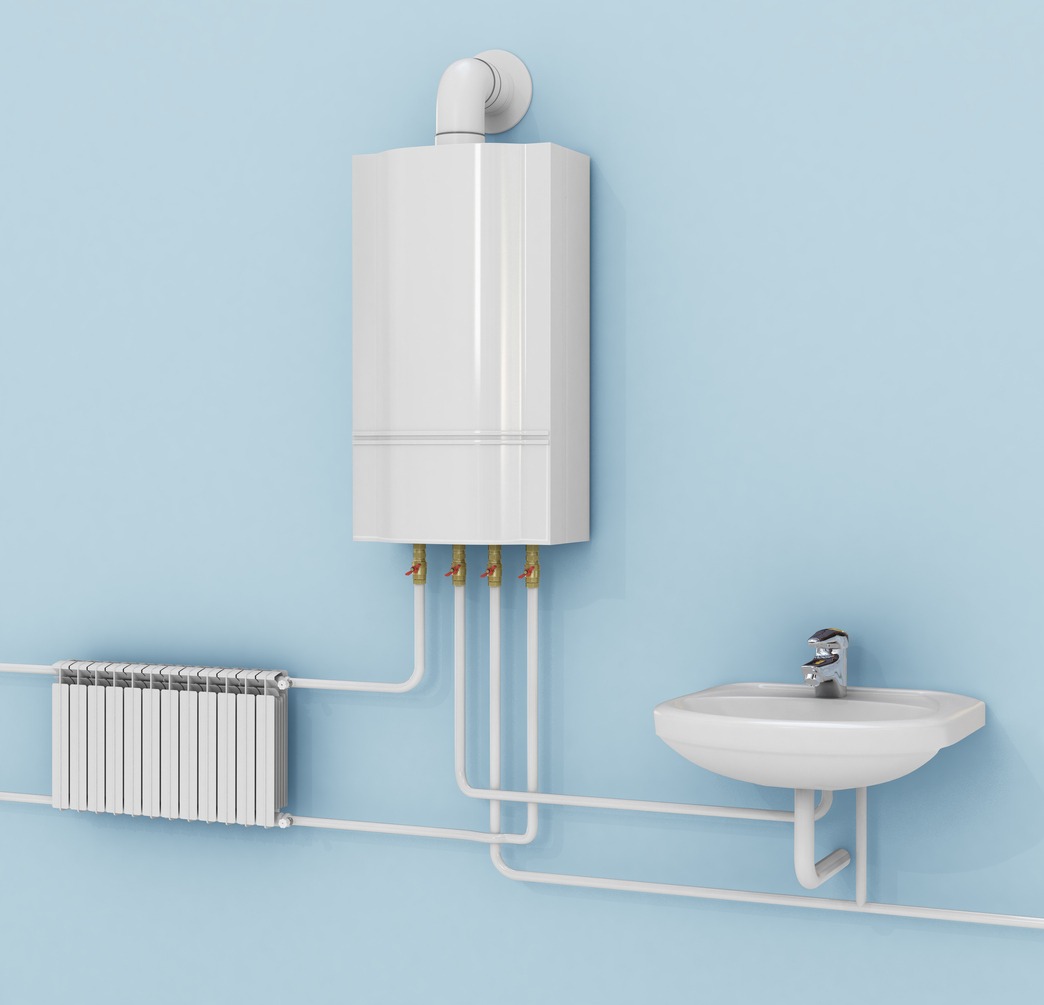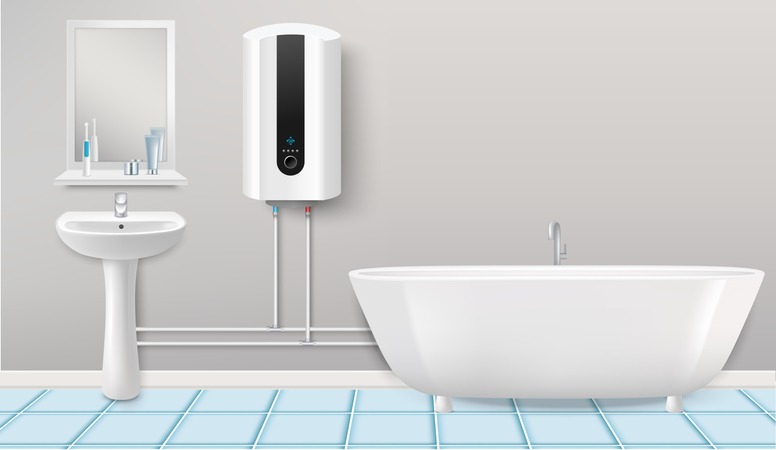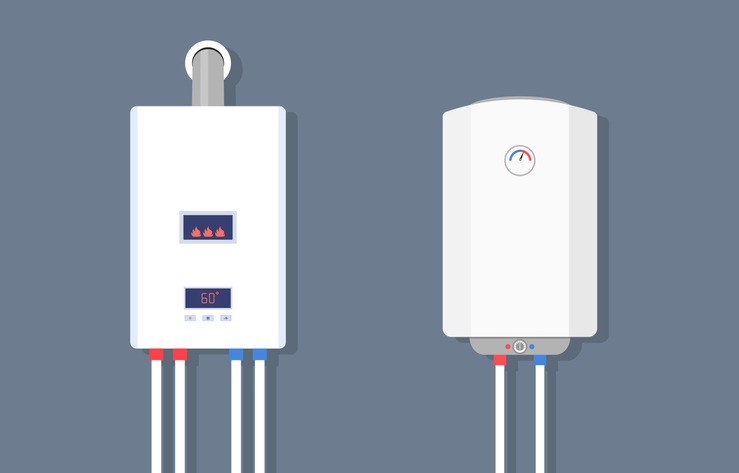Bathing without hot water is inconvenient. Have you ever turned the knob but there was no hot water? Do you know how much your hot water costs? There is an answer to all of your questions, and it resides in a smart water heater.
A water heater is an essential component of your home and contributes for around 18% of your home’s energy consumption. It produces hot water with an emphasis on energy efficiency. Without a water heater, you would have to manually heat the water whenever you required hot water.
Due to 21st-century technology, we not only have conventional hot water heaters, but also more efficient smart water heaters.
There are additional expenses associated with repeatedly heating and reheating water. Consider purchasing a smart water heater if you are bored of waiting for hot water.
What is a smart water heater?
Smart water heaters are designed to create a continuous supply of hot water, similar to standard water heaters. Smart water heaters, on the other hand, are fitted with remote controls and energy-saving capabilities. A water heater equipped with smart technology that can evaluate occupant behavior patterns, track usage patterns, and predict usage accordingly is a smart water heater. Through remote monitoring and consumption management, a smart water heater will prevent wasteful water and energy waste. For instance, homeowners can save energy and money by turning off their water heater during the workday and turning it back on via an app when they get home.
By upgrading to a smart water heater, it is simple to save energy, reduce bills, increase safety, and improve control. No more worrying about forgetting to turn off your water heater while on vacation or about hefty energy bills.
How does it function?
A smart water heater combines water temperature readings with consumption information and predetermined alternatives. This means hot water is available on demand. If you do not use the smart water heater, you will never use hot water. A conventional water heater does not operate in this manner.
Based on the size of your property, you may require multiple water heaters. If you have a larger home, more smart water heaters should be added into the system.
Multiple water heaters allow you to adjust the temperature of the water in your kitchen and restrooms. This does not negate the fact that a single water heater is more efficient.
Conventional water heaters have a thermostat that maintains a constant water temperature. This device can only turn the water heater on when the temperature is too low and off when the desired temperature is reached.
Reasons to Upgrade to a Smart Water Heater
1. Control
A smart system can provide you with total control of your water heater. If you wish to take a hot shower every morning at 7 a.m., that can be programmed. You can also easily monitor your water consumption.
With the ability to quickly turn off or on your water heater, you have greater control over your energy consumption. This will reduce your monthly energy costs.
2. Identifies Patterns
The system is also excellent if you want a hands-off approach. It may automatically learn your household’s hot water usage trends and adjust accordingly. If you begin taking evening baths instead of morning showers, for example, the smart system will adapt to fit your demands.
3. Alerts
Whether at home or out, smart technology may provide peace of mind. If there is a problem with your water heater, the system will notify you through the app. You can choose which alerts to receive, such as leak or system failure notifications.
4. Safety
Bacteria thrive in water heater tanks containing lukewarm water. Legionella bacteria, which can lead to Legionnaires’ illness, are undesirable in the house. Smart water heaters can monitor water temperature. They can be programmed to turn on at regular intervals to eliminate hazardous microorganisms.
Various Smart Water Heaters by Fuel Type
Wi-Fi water heaters and smart water heaters are powered by gas, liquid propane, or electricity. The benefits and cons of gas vs. electric water heaters must be weighed in light of their distinct operation.
1. Smart electric water heater
A smart electric water heater heats water using high-voltage rods in the tank’s middle. From the top, hot water is taken and delivered to faucets and appliances. A smart electric water heater is inexpensive, but its operation will be more expensive. Additionally, you may discover that it takes longer to heat your water. However, it is a clean and secure alternative.
2. Smart gas water heater
A smart gas water heater features a gas-fired burner at its base that heats the water, which then rises to the unit’s top and is distributed throughout the home. A clever gas water heater heats water rapidly and efficiently. Obviously, if your home lacks gas connections, a smart gas water heater is not a viable alternative.
3. Smart propane liquid water heater
A smart liquid propane water heater follows the same principle as a smart gas water heater. It heats water rapidly and maintains a constant temperature. If you do not have a gas connection and want an alternative to a smart electric water heater, this is the best solution. You must purchase propane, get a plumber, and ensure that the system is correctly ventilated.
Benefits of Smart Water Heater Technology
1. Maintain command of your water heating system
A smart water heater gives you full control over its functions and the data it collects. You can manually turn on and off your heaters or automate the process. You can program them to make you a hot bath every day and you can tell them to delay your bath if you were caught in traffic. And while you wait for the cars to disperse, you may review your energy and water consumption for the past week.
This technology effectively removes your furnace from the basement and places it in your hands.
2. Smart technology improves safety
Your smart heating system can use its data to make heating both more convenient and safer. Even while you’re not at home, their sensors are constantly active and can alert you if something seems amiss. The controller can be customized to notify you of any anomalies, such as leaks or excessive power use.
Even further, you can combine your system with a smart valve or electrical switch. Thus, your smart heating system can operate autonomously in the event of an emergency, relieving you of one concern.
3. Let your smart heater do the thinking
Smart water heaters are even more smarter than one may expect. The smartest type can learn your hot water consumption patterns. Once they learn when you need hot water the most, they will turn on and off automatically to meet your needs.
4. Be environmentally conscious
An estimated 15 percent or more of a typical household’s energy use goes towards heating water. This is mostly attributable to the operation of conventional heaters. By continuously cycling on and off, they do keep your water hot, but they waste electricity and other resources. Adding smart technology to your water heater will eliminate these wasteful energy costs.
5. Exercise management over your heating bill
What conserves energy also saves money. Although smart water heaters are more expensive than ordinary water heaters, they offer huge cost savings. Moreover, this technology, like many others, is becoming increasingly more inexpensive. Investing in a smart controller for your heater can pay for itself within a year.
In conclusion
smart water heaters are a welcome addition to virtually any residence. Whether you’re looking for a minor upgrade or a complete overhaul of your water heating system, this is the appropriate technology. They will keep your water hot when you require it and save you money when you do not.



